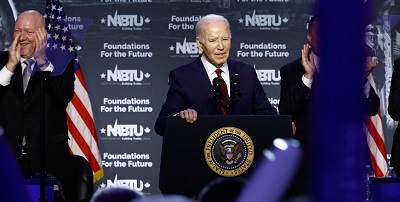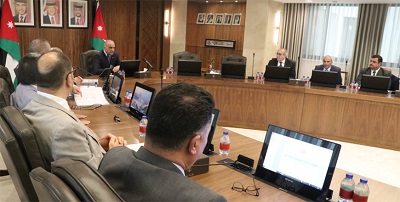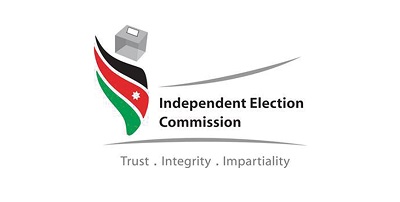Between a strong president and a strengthened president - By Nadim Koteich, Alarabiya
We are three weeks away from the completion of the second year of the term of Lebanese President Michel Aoun. His reelection was filled with headlines on Christians’ rights and on amending the partnership among the Lebanese components.
Aoun and his political and propaganda team has excelled in using the term “power” and its derivatives. The candidate Aoun was projected as the certain president because he is a “strong leader” who through his power can help Christians regain their rights. This hints to a presumed weakness of his predecessors. He is the “strong president”, supported by a wide social base and political forces which have given him the biggest parliamentary bloc. He is the “powerful era” that fights corruption, pushes the country forward and makes people happy.
Constitutional ambiguity
Aoun's management of the cabinet formation has taken advantage of the ambiguity of the constitution on the limits of his authority in forming the government, which is driven by his desire to establish a presidential system. Article 53 of the Constitution stipulates that the President of the Republic shall designate the Prime Minister on the basis of binding parliamentary consultations.
After agreement with the prime minister-designate, the government formation shall be issued in a decree. Item 2 of Article 64 of the Constitution stipulates that the prime minister-designate shall undertake parliamentary consultations to form a government and shall sign, with the President of the Republic, the decree of its formation.
The constitution does not specify whether the president's signature is just a procedure nor does it explain the issue of “agreement” between the two (the president and the prime minister) or this mechanism, and it does not address how the disagreement, if any, can be fixed. This ambiguity allowed President Aoun to turn his signature on the decree of the government formation into a “veto power” to bind prime minister-designate and make him captive of the President’s conditions.
As a matter of fact, Aoun's behavior did not come out of complete vacuum. After the Taif Accord and at the peak of the Lebanese debates over the constitution of the Second Republic, Aoun and his movement adopted the policy of appealing it because it stripped the Christian president of the enormous powers he enjoyed under the First Republic, while the Taif members, especially the Christian ones, defended the agreement and noted that the president still retains the right to sign the government formation and appoint employees, and therefore decides on the course of the composition of power, governed, of course, by the results of the parliamentary elections.
Indeed, former President Michel Suleiman rejected the first formation of President Saad Hariri after the 2009 elections, forcing him to form a second government, in line with his assessment of the national interest at the time.
President Suleiman’s precedent
However, President Suleiman's subtle exercise of power to sign the decree to form a government, and how he persuaded the prime minister-designate to adopt his standards and vision for the government did not cause the provocations that are being raised today.
After a meeting between Prime Minister-Designate Saad Hariri and President Aoun to discuss the formation, the presidential palace issued a statement saying that the President of the Republic made some remarks about the formation of the government stating that he made these remarks “based on the foundations and criteria that he set for the shape of the government and the interest of Lebanon.”
Former prime ministers Fouad Siniora, Najib Mikati and Tammam Salam issued a statement in response and stressed that the reference to “the foundations and criteria that the President of the Republic set for the formation of the government is out of context because it is based on a non-existent concept in the constitutional texts.”
They also emphasized that the prime minister-designate is the one who puts in place the project for the formation of government “without being constrained by prior standards, outside the provisions of the Constitution.”
Aoun’s vocal statement about the presidential standards is what provoked the former prime ministers, especially as it came in the context of a series of constitutional interpretations that are making up constraints on the prime minister. Their statement, however, overlooked that a former president of the republic has once rejected the formation presented by Hariri and demanded changing it. He certainly did so based on a criteria that remained in his mind, even if it was not inked on a presidential statement.
This is one of the gray areas in the Lebanese constitution that is causing debates over the balance of partnership between the different components, and this is a problem in itself. But the big problem is that the president has lost the opportunity to turn this important authority into a positive tool which he uses to impose the concept that all political forces must be represented in the government with the best of their own and where he commits to not signing on any formation unless it includes an elite of the competent and reputable figures in the parties and movements.
Instead, Aoun chose to include this power in the course of his battles with his opponents, to reduce the quota of one party and cancel the share of another. He dived into the game of quotas that drained his ability to lead a national proposal that is a sincere representation of the meaning of a strong president.
Chances have been wasted. Aoun chose to be the president who is strengthening himself with the power of his signature instead of being the strong president whose strength is derived from a national project and accomplishments.
May God have mercy on President Fuad Chehab, the “weak” president who gave us everything that is now in our possession of the remnants of the strong republic.
Latest News
 'Sinwar Above Ground': Hamas official's revelation shocks Israeli Occupation
'Sinwar Above Ground': Hamas official's revelation shocks Israeli Occupation US president signs bill to provide new aid for Ukraine
US president signs bill to provide new aid for Ukraine Prime minister directs government to support IEC ahead of upcoming elections
Prime minister directs government to support IEC ahead of upcoming elections Parliamentary elections for 20th Lower House to be held on September 10 – IEC
Parliamentary elections for 20th Lower House to be held on September 10 – IEC Amman Chamber of Commerce says GDP grows by 4.4% in 2023
Amman Chamber of Commerce says GDP grows by 4.4% in 2023
Most Read Articles
- More than 100 arrested at US university pro-Palestinian protests
- King, French president discuss regional developments
- Irish foreign minister visits Palestinian refugee camp in Amman, vows support to UNRWA
- Senior Hamas official says movement is “awaiting response” in ceasefire negotiations
- Jordan remembers Queen Zein
- JAF carries out six more airdrops of aid into Gaza
- Cassation Court upholds over 3-year sentence for drug dealer
- Hizbollah denies Israel claim it killed half of commanders in south
- Sharing the tech wealth - By Diane Coyle, The Jordan Times
- Jordan completes human rights review before council’s evaluation Jordan completes human rights review before council’s evaluation